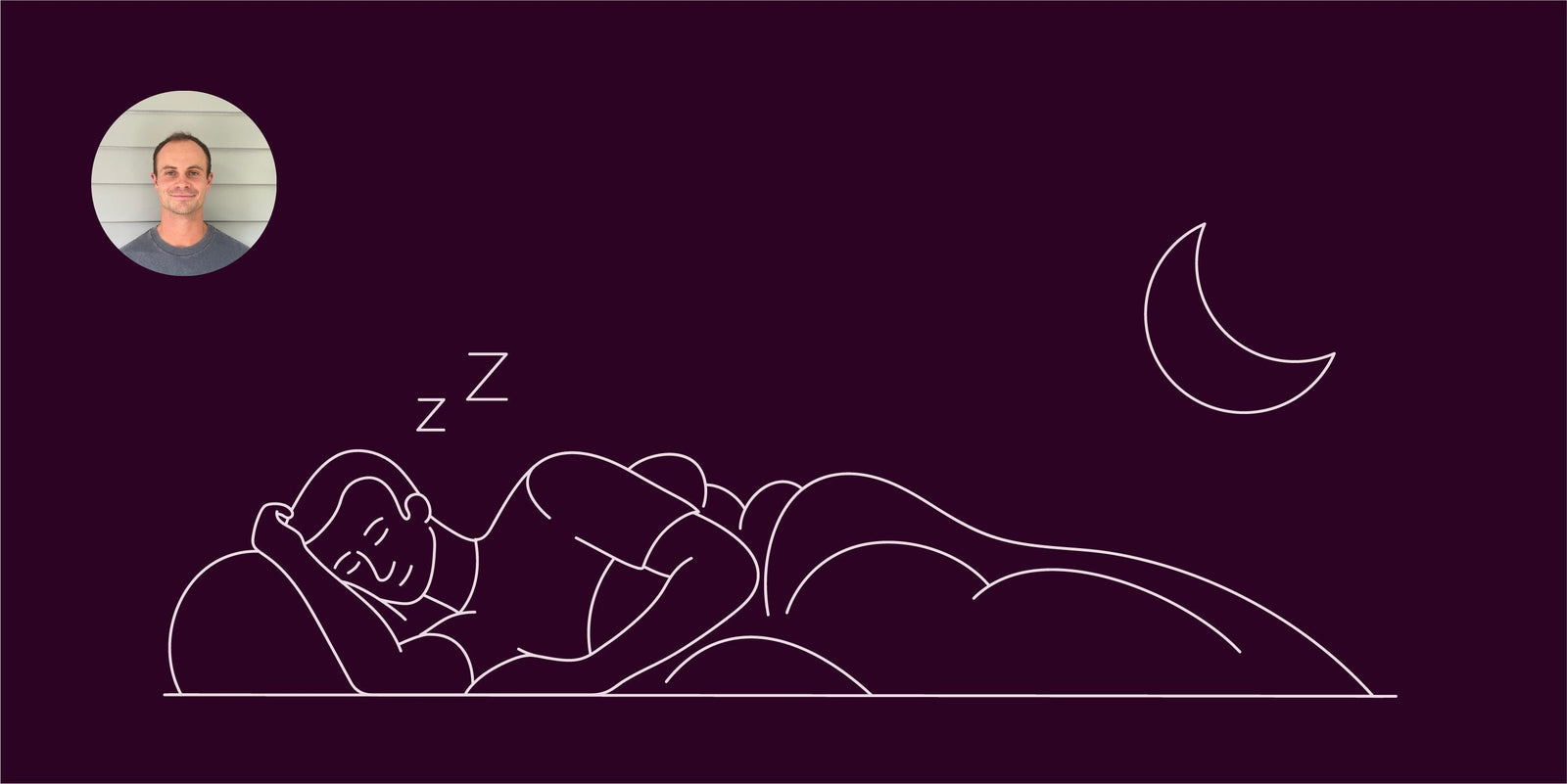Your Cart is Empty
Free Shipping On Orders Over $100

Free Shipping On Orders Over $100
Where is your Brain?
Your brain is amazing. Select your country's website to access the world's best scientifically proven Brainfood.
Sam the Neuroscientist: The Importance of Sleep
4 min read

Why Your Brain (and Future Self) Wants You to Take Sleep Seriously
Words by Sam, Ārepa’s In-House Neuroscientist
We’ve been keeping a little secret. After years of research, formulation trials, and a few too many yawns at Monday morning meetings, we’re finally getting ready to launch our brand-new Ārepa Sleep Capsules—a melatonin-free, science-backed supplement designed to support your sleep quality the natural way.
But before we tell you more about what’s inside the capsule, let’s zoom out for a second.
Because while "getting more sleep" is the world’s most ignored advice (right next to “drink more water”), understanding why it matters is the first step in actually doing something about it.
So… What Is Sleep, Anyway?
Until the 1950s, we thought sleep was just downtime for the brain. A kind of biological Netflix buffer zone. Turns out, that couldn’t be further from the truth.
During sleep, your brain runs one of the most sophisticated overnight operations known to biology. It clears waste, repairs tissues, files away memories, strengthens your immune system, regulates emotions, balances hormones, and prepares you to learn and focus the next day. That’s not laziness—that’s elite-level housekeeping.
We cycle through several stages of sleep (Stages 1–3 and REM) every 90 minutes or so. Deep sleep (Stage 3) is like hitting “Restore Factory Settings” on your body. REM sleep is where creativity blooms, memories solidify, and your brain gets to play back the weirdest movie trailers you never asked for.
Neglect either, and you don’t just feel groggy—you short-change your brain.
Why Sleep Quality Trumps Sleep Quantity
Let’s clear something up: not everyone needs eight hours. Some people (genetically blessed unicorns) thrive on less. What matters most? Sleep efficiency—getting into those deeper restorative stages, more often, without spending half the night tossing around thinking about what you should have said in that meeting three years ago.
So instead of fixating on the clock, try putting your body and brain in the right state to sleep. That’s where the real magic begins.
Brain Health, Burnout & the Sleep Connection
Think of sleep as your brain’s overnight maintenance crew. Miss enough of it, and the system starts glitching: memory gets fuzzy, mood dips, focus wavers, and over time, chronic sleep deprivation is linked to more serious cognitive issues.
As sleep researcher Matthew Walker famously said:
“There is no major physiological system of the body or major operation of the brain that isn't wonderfully enhanced by sleep when we get it, or demonstrably impaired when we don’t.”
And yet, millions of us walk around in a fog, convincing ourselves we’ll “catch up on the weekend.” Spoiler: you can’t.
Sam’s Top Tips for Better Sleep (Straight From the Lab & the Couch)
-
Create a sleep ritual
Whether it’s herbal tea, light stretching, or an audiobook with 1.5-star narration, consistent wind-down cues signal your brain it’s time to power down. -
Dim the lights (and your phone)
Blue light delays melatonin release and makes your brain think it’s still go-time. Try cutting screens at least 60 minutes before bed (or switch to night mode). -
Keep it cool
A drop in body temperature helps initiate sleep. Aim for 16–18°C in the bedroom. Sorry, duvet hoarders. -
Don’t chase sleep
If you’re still awake after 30–45 minutes, get up, do something calming (no phones), and return to bed when sleepy. -
Support your brain chemistry naturally
Ingredients like L-theanine, magnesium, and saffron are being studied for their role in calming neural activity and supporting natural sleep rhythms—without knockout punches or next-day brain fog. 👀 (a new solution coming soon)
Where Do Ārepa Sleep Capsules Come In?
Glad you asked.
Our new Sleep Capsules were designed for people like us: busy brains that need help winding down, not knocking out. Each capsule contains:
-
200mg L-theanine – known for supporting alpha brainwaves associated with calm, focused relaxation.
-
28mg Saffron – studied for its role in mood balance and sleep quality in healthy adults.
-
200mg elemental Magnesium (as bisglycinate) – to support muscle relaxation and neural calm.
No melatonin. No dependency. Just neuroscience-backed ingredients selected to support your natural sleep process—so you can sleep well and wake up clear.
Sleep Like Your Brain Depends On It (Because It Does)
We designed these soon to be released capsules because we believe sleep is not a luxury. It’s foundational to brain health, mental performance, mood, memory, creativity, and even immunity.
If you've ever felt like your brain is buffering mid-sentence or forgot why you walked into a room… you’re not alone. Sleep could be the unsung hero you’ve been missing.
The first limited batch of Ārepa Sleep Capsules drops soon, and we’re giving early access to our loyal customers first. Keep an eye on your inbox.
In the meantime: rest up. Your brain will thank you.
— Sam & The Ārepa Team 🧠💤
Join the VIP list to be 1st in-line for the release of our new Brain Capsules for Sleep Support
Leave a comment
Comments will be approved before showing up.















